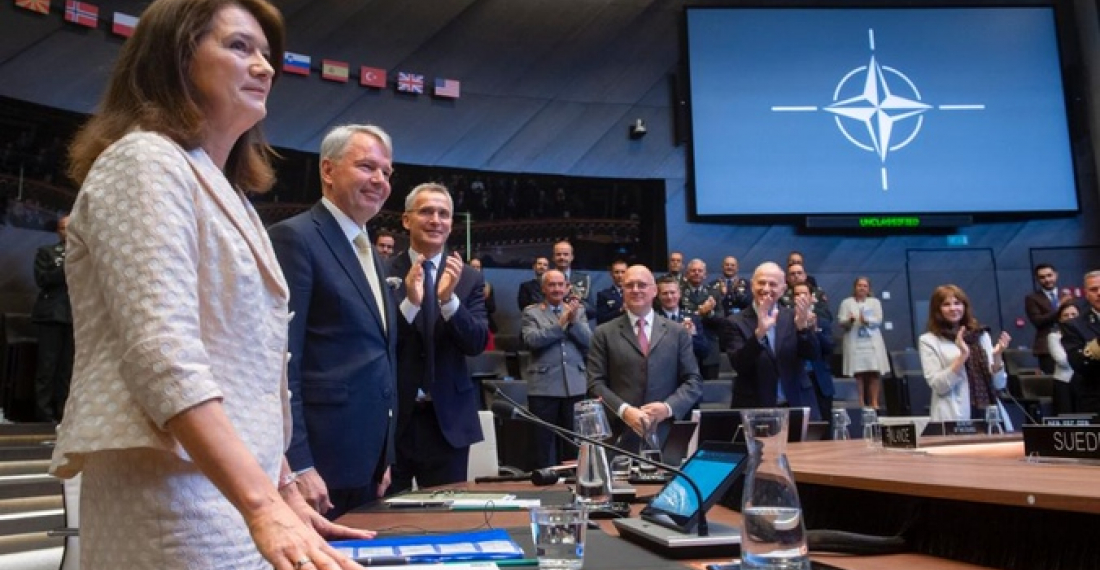NATO Ambassadors signed the Accession Protocols for Finland and Sweden at NATO Headquarters on Tuesday (5 July 2022), in the presence of Finnish Foreign Minister Pekka Haavisto and Swedish Foreign Minister Ann Linde.
NATO Secretary General Jens Stoltenberg said: “This is truly an historic moment. For Finland, for Sweden, for NATO, and for our shared security.”
Last week at the Madrid Summit, Allied leaders agreed to invite Finland and Sweden to join NATO following the agreement of a trilateral memorandum between Türkiye, Finland, and Sweden. Today, the Accession Protocols were signed, marking the start of the ratification process.
The Secretary General said that NATO’s door remains open to European democracies who are ready and willing to contribute to our shared security: “
With 32 nations around the table, we will be even stronger and our people will be even safer, as we face the biggest security crisis in decades.”
related content on commonspace.eu: The decision of Sweden and Finland to apply for NATO membership is the right one and should be supported
The protocols now need to be approved by the countries of all thirty member states, and this procedure will take a while. But for many practical purposes Sweden and Finland are now members of the alliance, breaking with decades of neutrality as Europe continues to face Russian aggression against Ukraine.
source: commonspace.eu
photo: The signing of the Finland and Sweden accession protocols at NATO headquarters on 5 July 2022 (picture courtesy of the NATO press service)






